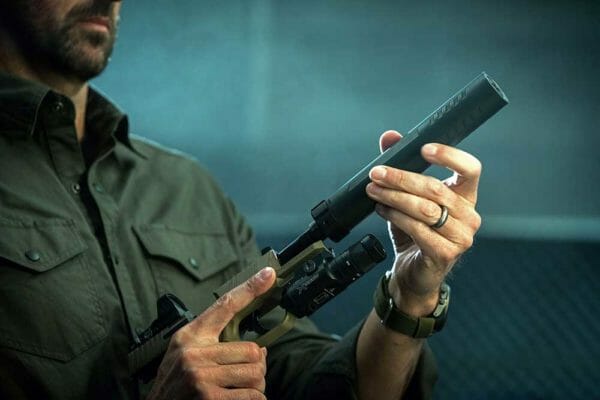
U.S.A. — In the United States District Court for the Southern District of Illinois, on November 25, 2022, Larry Morse and Theodore Ray Buck, Jr. filed a lawsuit against the state of Illinois, claiming the state ban on the sale and possession of silencers violates the Second Amendment. A similar lawsuit was filed by Carlin Anderson and David Clark on February 27, 2023, backed by the American Suppressor Association. The two lawsuits, Morse v Raoul and Anderson v Raoul, have been consolidated as of June 15, 2023. The parties involved have agreed the principle area of contention is whether silencers are arms protected by the Second Amendment. Morse and other plaintiffs claim silencers are obviously bearable arms and are in common use, so they cannot be banned from ownership as they are in Illinois. Here are excerpts from the pleading in Morse v. Raoul. From courlistener.com:
29. As of 2020, there were 2,042,719 suppressors owned by law abiding citizens as registered in the National Firearms Registration and Transfer Record (“NFRTR”), far more than was needed for the DC Circuit to find AR-15s in common use. And that is despite legal impediments to owning a silencer, including the National Firearms Act requirements—paying a $200 transfer tax, submitting a detailed application and fingerprints, and a multi months-long wait for the federal government to process the application. See26 U.S.C. § 5811. Even arms that are far less common have been found to be protected.
Plaintiffs point out that silencers are used for numerous lawful purposes. From the complaint:
33. And the primary purpose of suppressors are for lawful purposes, including hunting, which Heller v. District of Columbia, 399 U.S. App. D.C. 314, 331, 670 F.3d 1244, 1261 (2011) holds is part of the Second Amendment right, self-defense (the core right pursuant to District of Columbia v. Heller, 554 U.S. 570, 628, 128 S. Ct. 2783, 2817 (2008)) and target shooting which both the Seventh and Third Circuits have already found to be protected Second Amendment conduct. The right to self-defense “implies a corresponding right to acquire and maintain proficiency” with common weapons. Ezell v. City of Chicago, 651 F.3d 684, 704 (7th Cir. 2011) [hereinafter Ezell I].
Silencers are in common use. They are used for numerous lawful purposes, including self-defense. The major contention of the State of Illinois is silencers are not arms, they are merely an accessory. From the motion by the defendants:
Defendants Kwame Raoul, Brendan F. Kelly, Craig Miller, and Bryan Robbins respectfully move the Court to enter judgment in their favor pursuant to Federal Rule of Civil Procedure 12(c). Plaintiffs raise a Second Amendment challenge to an Illinois law prohibiting the possession of silencers, which are attached to firearms to reduce the noise of gunfire. But the Second Amendment protects only “the right of the people to keep and bear Arms” (emphasis added). Silencers are not weapons. They are not used for self-defense. And they are not necessary to the effective use of a firearm. So they are not “Arms” within the meaning of the constitutional text, and thus plaintiffs cannot prevail on their Second Amendment claim.
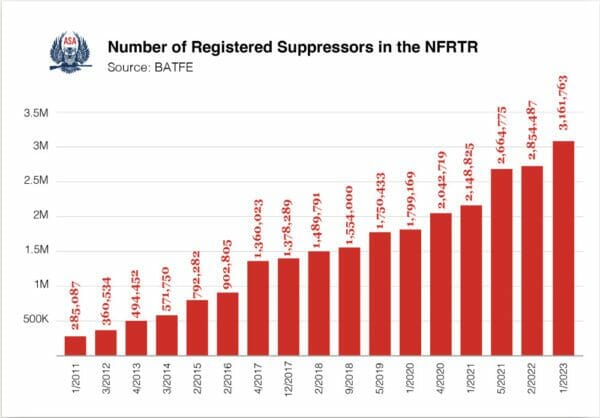
Two problems exist with the above claim. The first is that silencers are explicitly treated as arms in both Illinois and federal law. While silencers are not “arms” by themselves, they clearly add to the effectiveness of firearms and aid in the use of firearms for lawful purposes such as self-defense. The second is accessories, which make arms more effective, such as aiding in training, are protected under the Second Amendment. The State of Illinois claim could be used to ban magazines (currently under contention) or other firearms accessories such as telescopic sights, red dot sights, flash suppressors, or even such things as rifled barrels or recoil pads.
The Supreme Court, in Caetano, made clear all items which constitute bearable arms fall under the protection of the Second Amendment. Outright bans on bearable arms are not allowed if the arms are in common use for lawful purposes.
This is why the State of Illinois is contending silencers are not arms. If they are not arms, why are they regulated and banned, especially under Illinois and United States weapons statutes? Illinois code 720 ILCS 5/24-1(a)(6) bans the possession of any device or attachment designed, used or intended for use in silencing the report of a firearm. If they are not useful to make firearms more effective, why ban or restrict them?
If the court rules silencers are arms under the protection of the Second Amendment, the Texas lawsuit against the NFA restrictions on making silencers gains credibility.
What Illinois is attempting to do is a salami slice destruction of the Second Amendment. Under the theory that accessories, which make weapons more effective, can be banned, the Second Amendment could be reduced to the absurdity of allowing only a single, muzzle-loading shotgun for defense in the home. Such an absurd outcome is not allowed under the Second Amendment.
About Dean Weingarten:
Dean Weingarten has been a peace officer, a military officer, was on the University of Wisconsin Pistol Team for four years, and was first certified to teach firearms safety in 1973. He taught the Arizona concealed carry course for fifteen years until the goal of Constitutional Carry was attained. He has degrees in meteorology and mining engineering, and retired from the Department of Defense after a 30 year career in Army Research, Development, Testing, and Evaluation.


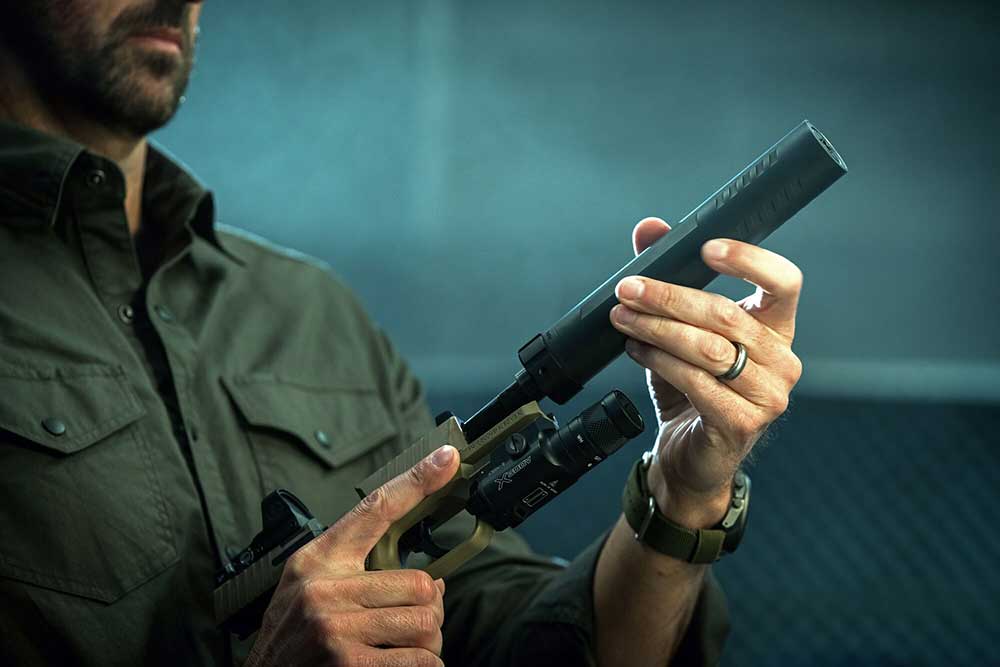
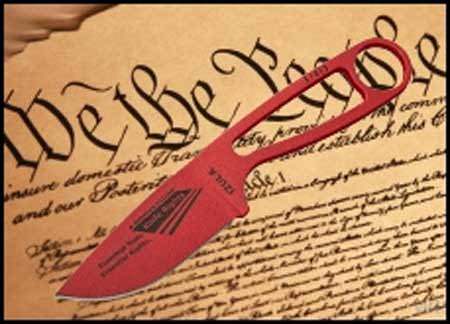
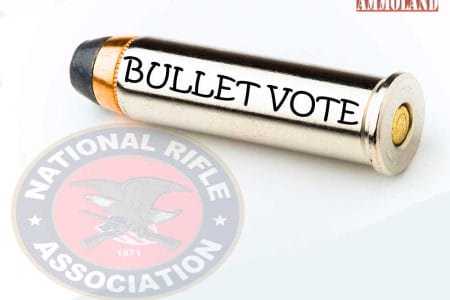

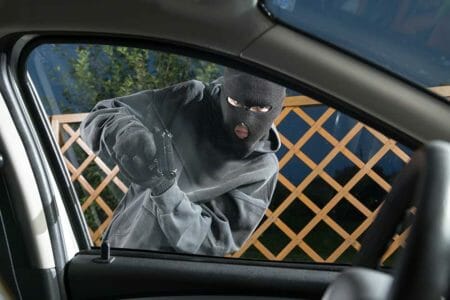
Arm braces and bump stocks aren’t arms either. These laws are intended to make criminals out of honest people who oppose a tyrannical government.
If suppressors are not arms, then what business does the ATF have in regulating them? Why are they covered under the NFA?
They were not considered arms until the government declared them as arms when they regulated them.
I’ve never understood the logic behind the suppressor ban. Is hearing protection NOT a valid goal?
Reason for the ban, stupid politicians without any real knowledge of what they are doing plus they get their greedy hands on our money.
Same thing with property taxes, and lots of other taxes laid on the working man.
Blame it all on Hollywood and the idiot politicians who believe that suppressors actually silence the sound of a gun firing, to a level below that of a fart and that criminals use them all of the time.
To my recollection, I only know of 2, 9MM semi-auto pistols that could do that and it was developed and made by the Naval Research Lab and cost over $250K each, to make. This was in the early 1970’s and made for a SEAL assassin in ‘Nam. If you recall, it’s the same time the 147gr sub-sonic round was developed.
In the early ’30s, an attempt was made to disarm the public of handguns, machine guns, and suppressors. Knowing that an outright ban wouldn’t float, congress settled on a tax on these firearms, retroactively. Since rifles and shotguns can be cut down to large handgun size, they outlawed (taxed and regulated) the short vesions of them, too. At the time, nobody but the elite could afford the proposed $200 per item tax. In debates it was realized that an outright handgun defacto ban wouldn’t pass judicial review, so handuns were taken out, leaving short barreled shotguns/rifles, machine guns,and suppressors. Suppressors… Read more »
Know guns, know peace.
No guns, no peace.
EVERYTHING is protected by the Second Amendment. That’s why it’s in there, it protects the ENTIRE Constitution, and then some. It will never be done away with, for to do so would cause it to activate. “Second Amendment powers….ACTIVATE!”
Suppressors are not arms.
It does not matter whether a device is in common use.
It does not matter how much the suppressor reduces the sound of a weapon.
It does not matter whether the device can be used for lawful purposes or not.
The only thing that does matter is whether you or I decide that we want one for our weapon. Once it becomes a desired item then government restricting access to that item is called “Infringement”.
HLB
Irrespective the contention these disputes always travel the same sordid course. Whatever you know legitimate, they insist is not.
then, using the illinois thought process putting an after market trigger, sights or laser would be illegal and could be banned by the government because they are not bearable arms.
an suppressor is an after market sound reducing accessory. it is legal in many states and other nations around the world, so why should illinios want to ban it?
Control
Anything that is useless when not attached to a firearm is, in essence, a firearm for 2A analysis. The test to determine if it is covered by the 2A is therefore whether it is “dangerous and unusual.” Even assuming that a suppressor is “dangerous” because it could aid in criminal use (I don’t agree), it is certainly not unusual. If something is in regular use by military, police, competition shooters, and the general public, it cannot be called “unusual.” The ban on suppressors was ignorantly imposed because a bunch of legislators had seen movies where they falsely portrayed suppressors as… Read more »
I am afraid that if we keep using the artificial and invented terms like “dangerous and unusual” or decibels of suppression or “sawed off” or “common use”, we will do more harm than good. These terms were not in common use at the time of the creation of the Bill of Rights and therefore are null and void in a rights argument. By using them we are acknowledging that they can be argued in court. Once we do that, we have lost half the battle.
HLB
Why would this not extend to full auto firearms? Or to any device that converts a semi-auto to full auto?